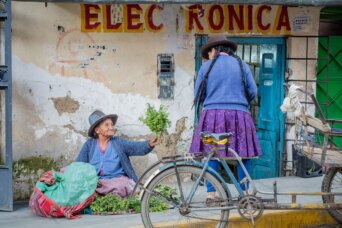- About
- Topics
- Picks
- Audio
- Story
- In-Depth
- Opinion
- News
- Donate
- Signup for our newsletterOur Editors' Best Picks.Send
Read, Debate: Engage.
A couple of weeks ago, the ancient region of Cusco, in Peru, celebrated the reopening of Machu Picchu under new sanitary measures, one of the most famous touristic monuments of the country and, therefore, a source of considerable income for local people – although COVID-19 continues to hit hard and claim lives in the region and country. Just some days later, the nation was thrown into a historical political instability.
The clash began on November 9, when the legislative house approved the impeachment of President Martín Vizcarra, supposedly by corruption, though the evidence was not recognised by many politicians and the much of the public. The president of the congress, Manuel Merino, who is the second in line for the role took the presidential chair.
The act was accused by many as being a coup, and Peruvians seemed they will not be simply accepting the decision. Violently repressed protests started to take the streets, leading to at least two demonstrators shot to death as well as dozens injured and more than 40 missing, according to a report from The Guardian.
Several public figures opined about the president overthrow, including the writer and Literature Nobel winner Mario Vargas Llosa. In an interview with the local media El Comercio, he called the act unconstitutional. "It is an absolutely regrettable situation of confusion and anarchy. To a large extent, the confusion of international public opinion is due to this absolutely unusual situation whereby a new Congress has spoken in such an absurd way and very clearly against the Constitution and Peruvian legality."
The controversial impeachment reminds us of the one which occurred in Brazil four years ago when then-president Dilma Roussef was impeached and her vice-president, Michel Temer, took office. For this reason, the journalist Brian Winter twitted "Peru’s Michel Temer has resigned” when Merino finally listened to the people’s claims — the two young men's deaths were decisive for his loss of support as, in the words of the politician George Forsyth, his hands are “stained with blood." At least 12 ministers also made their positions available. When this article was finished, Peruvian Congress had not chosen a new interim president, as the elections are scheduled to take place in April 2021.
The future of Peru, as well as its past, is somehow similar to other Latin American neighbours. Our history was written in blood since colonization times; our democracy was deprived of us during periods of dark military dictatorship; our people are still immersed in a daily fight for survival, in the overcoming of slow and hard social inequalities. In the words of Eduardo Galeano, in the classic book Open Veins of Latin America: "There is a lot of rot to launch into the sea on the path to reconstruction in Latin America. The dispossessed, the humiliated, the cursed, they do have the task in their hands. The Latin American national cause is, first of all, a social cause.”
That is the challenge that Peru now faces: to ensure the recently welcomed democracy survives, and at the same time, making sure that people can live a fair and safe life. The bases of these achievements are the transparency of a presidential choosing process – now and in future elections – and the proper investigation of human rights violations during demonstrations.
Image by lauraelatimer0

